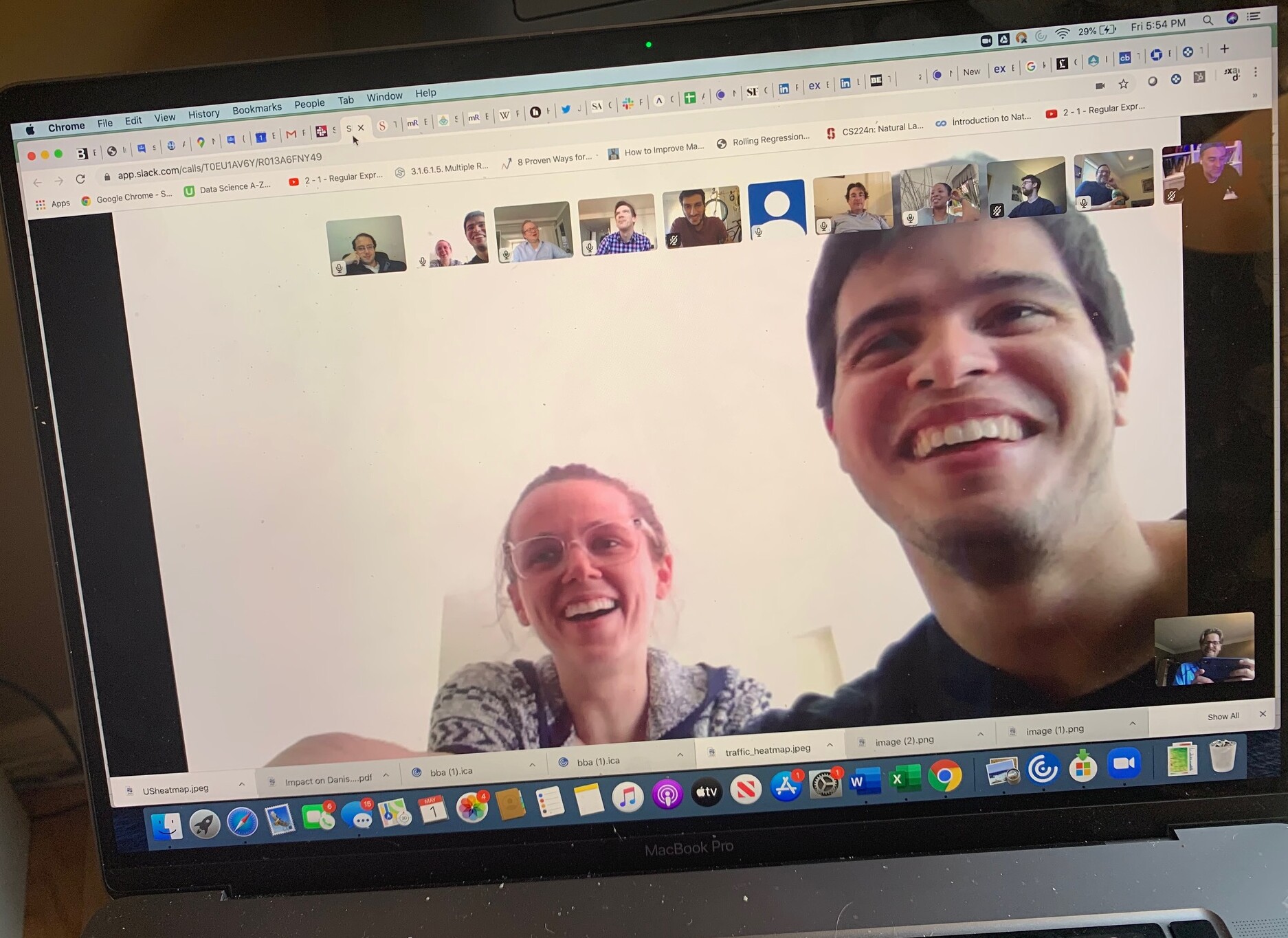
What I Learnt From Managing Teams Remotely (During 8 Weeks of COVID Lockdown)
By Jens Nordvig
A couple of points about what I learnt about managing teams while working remote with the crew at Exante Data since early March. It is just my personal take, not an essay for Harvard Business Review.
It is based on a twitter thread from April 25, with some additional points and pictures added.
1) Not having a form of morning team meeting with key parts of your group is insane. I have operated without it for years (when we were in the same physical office). And in hindsight, it clearly hurt productivity.
2) The illusion of working closely together, when in the same room, can really bring about bad habits. Distance brings about helpful discipline in that regard.
3) When doing number crunching in a team, looking closely at the same data (tables/charts/heat-maps/stats) via screen-share is actually better than cramming together in front of one physical screen. Slack software helps tremendously here. Try it.
4) It matters if folks on audio/video calls have good sound. A headset with a good microphone can be game-changing. Similarly, if you do a lot of remote phone calls (in the US), it can be extremely helpful to have multiple phones, from different providers.
5) Having at least two of the main phone providers (AT&T, Verizon, T-Mobile) allows you to do quality calls in the US with a much higher probability (as well as faster hot-spotting, if your wireless is down); I have less issues with this in EU/Asia for-what-its-worth.
6) Using wireless dialing on your phone can also help here, and if you are in an area with bad reception. It is really like coming up to breathe after 3 minutes under water, if you had to live without good reception (oxygen) for a while.
7) Since the day/week/month does not have the same compartmentalization as normal, everything is a blur. It can be helpful to specify fixed lunch breaks (and other breaks) during the day, so the team knows when to get in touch with each other, and when not to.
8) when working remote, it is very important to keep team members updated on your progress (and lack of it) on key projects to keep momentum (as you cannot feel out whether progress is made or not from being in same room). Two daily updates seems about right.
9) Updates have to be done electronically, or via calls. Informal updates, if they are not crucial or very time sensitive, are probably best suited for a chat posting (such as on a slack chat for an appropriate subgroup).
10) when working remote, things can get very ‘business focussed’ (and too robotic). It makes sense to take time to have personal conversations with key team members regularly on the phone, as there is not much human socializing of other kinds left in the day.
11) While I hate having too many meetings, and wasting time on regular daily and weekly meetings, it does make sense to have regular check-ups for key sub-groups at least weekly, to allow a more informal/free-flowing human interaction, as opposed to targeted meetings only.
12) Screens: Different people have different preferences here. But if you do a lot of writing, based on data, it is essential to have more than one screen. I use two laptops and an extra screen; that way I do not have to have sleepless nights about one laptop breaking down, and I can use both laptops together when that makes the most sense. I travel with the same setup too, so I can setup roughly the same in every location.
13) Have sufficient headphones available, including spare ones. Your family members and/or pets will inevitably steal them. Having some in reserve will reduce frustration associated with ‘inside-household-theft’.
14). If possible, lock the door to your office / work area while doing important calls/video conferences. Then you do not have to worry about (and waste mental energy on) the possibility that a horde of kids storms in during your closing pitch (like the guy on BBC),
15) Hiring can be difficult, since it is not possible to do a personal meeting/interview. Hence, personal recommendations are now incrementally more valuable, as it deals with some of the screening you would normally handle in an in-person interview. On the flip-side, the job-market stinks. So there are MANY qualified people available.
I will leave it at that. It is amazing what teams can do without an office, using new technologies. This is going to be a major wake-up call for major dense metropolitan areas with extremely high cost of real estate/rent (and devastating human ‘suffering’ linked to commuting).
PS: It is possible to socialize via zoom (and other videoconferencing tools) too. Below a picture from Exante Data’s inaugural happy hour. Believe or not, it actually was fun. Humans really know how to adapt.




